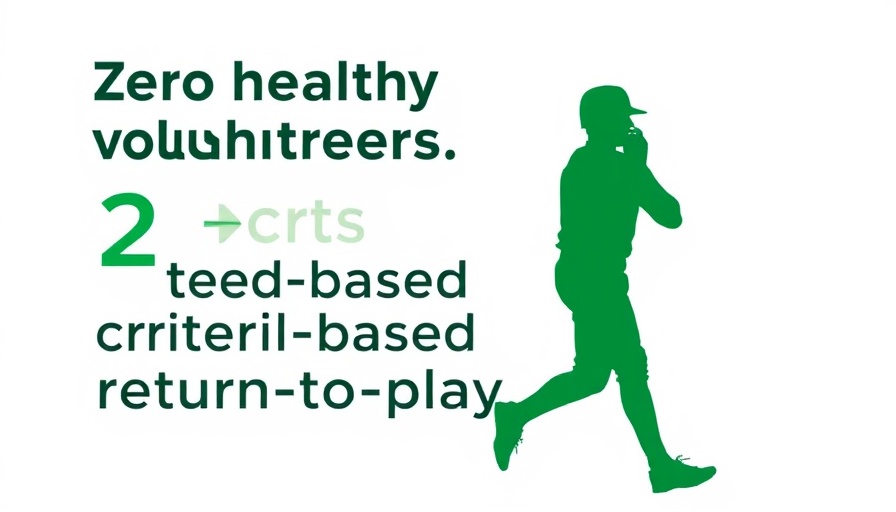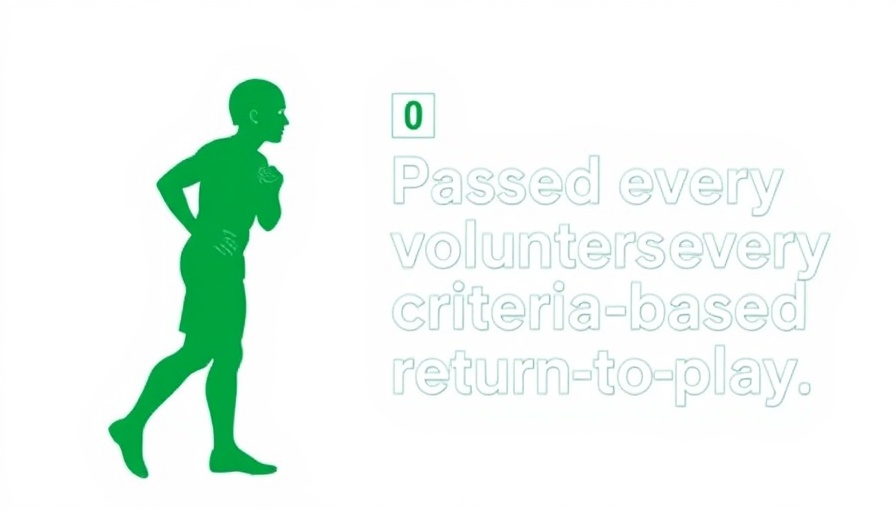
Understanding Return-to-Play Testing: A New Perspective
As the field of sports medicine continues to evolve, there's a growing concern that traditional, criteria-based return-to-play testing may not fully capture what a patient needs after an arthroscopic Bankart repair. You might be wondering, what does this mean for your concierge practice and patient care? By redefining our approach to patient recovery, we can better connect with our clients and provide more comprehensive, personalized care.
Why Criteria-Based Testing Falls Short
Return-to-play testing often focuses heavily on physical metrics—think strength, agility, and range of motion. But what if these tests overlook emotional readiness or mental well-being? Many athletes experience anxiety about returning to their sport, which can significantly impact performance and wellbeing. As a concierge medicine practice, recognizing and addressing these emotional factors can set your practice apart and enhance patient trust.
Trends in Sports Medicine and Its Impact on Patients
Considering how sports medicine adapts to new research is vital. Studies show that integrating mental health assessments into recovery protocols can improve outcomes. For concierge medical practices, staying ahead of these trends not only benefits your patients' recovery but can enhance your practice's reputation. Are you ready to embrace a more holistic approach?
Actionable Insights for Concierge Practices
1. **Incorporate Mental Health Resources**: Collaborate with psychologists or sports therapists who specialize in athletes' mental health. 2. **Educate Patients on Recovery**: Help your patients understand that recovery isn't merely physical; it's a multifaceted journey. Informative resources can empower them to take ownership of their recovery. 3. **Adapt Your Testing Protocols**: Ensure your return-to-play criteria include assessments that look beyond physical benchmarks. Custom assessments can resonate more with your patients' real needs.
Building Lasting Connections through Comprehensive Care
In concierge medicine, one of your core goals is to foster strong relationships with patients. Taking the time to include emotional and psychological support in your recovery protocols may lead to stronger trust and patience. When patients feel understood and supported, they're more likely to share their experiences with family and friends, fueling your business through word-of-mouth and enhancing your local standing.
The Future of Patient Care in Concierge Practices
As the medical landscape shifts, practices that embrace a holistic view on patient care—like incorporating mental wellness into physical recovery—are likely to thrive. The future of patient care will not just focus on returning athletes to play but rather on nurturing their overall well-being, setting a new standard in health care.
 Add Row
Add Row  Add
Add 






Write A Comment